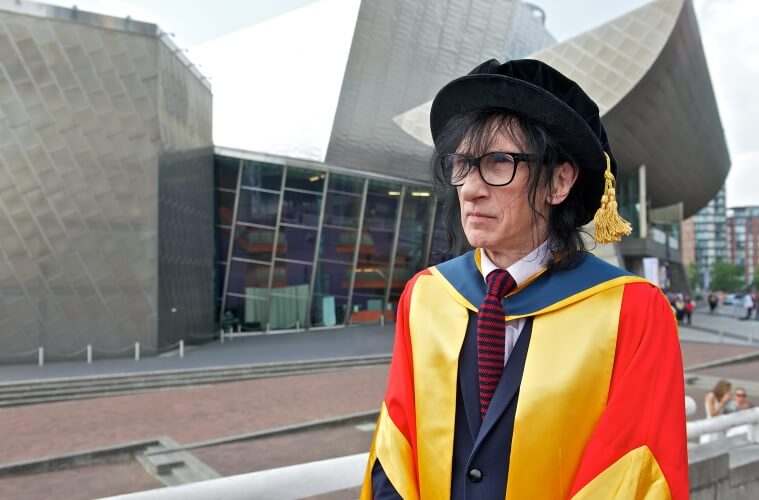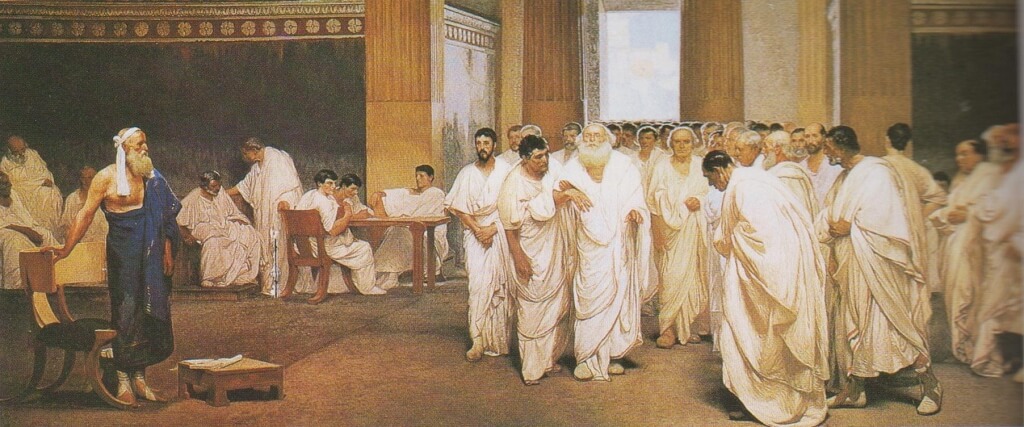It’s all going so well
So you have just returned those silly graduation robes back to the hire shop and are now standing looking at your newly minted 2:1 honours degree on the wall. It was a long road with many late nights studying hard to get that all important result. Well done, you deserve this moment, enjoy it.
The good news is that you have now joined the 2:1 club and should gain all the benefits that it brings. All that useful knowledge you have received from your education will no doubt serve you well but the real advantage you now have is that you have successfully passed the first real test of a professional life.
University is not really about learning things, it’s just another stage in a long sequence of tests that everyone has to go through to gain access to a professional grade career. You can now stop looking at the job adverts for bar work, pizza delivery or manual labour. It’s all going to be smart suits, office lunches and decent monthly salaries from this point onwards.
Teaching someone professional skills is time consuming and expensive. Companies don’t want to spend that kind of effort on someone who is unlikely to be able to pick up the more advanced knowledge. What they want is to hire someone who already has a proven track record of being capable of assimilating complex ideas and concepts.
Best to hire someone with a 2:1 honours degree then.

Just keep going
But you really enjoyed your time at University. The flexible hours, the relaxed dress code and the endless supply of cheap drinks promotions were really good fun. All the old timers will say that it’s the best time of your life and they really were not kidding. It’s all downhill from here.
So why not continue that journey while you still have the chance. That masters degree sounds really impressive and should give you an advantage over all the other competition for those really top jobs. There are plenty of advisors and websites out there that will tell you that it’s a really good thing to have and it is. No question about it.
Having a Masters degree is the final stage of the professional testing process that begins with joining the 2:1 club. Not only have you demonstrated that you can work with complex abstract concepts but you have now shown that you can do it to a very high level. Senior management beckons.
Actually doing the job
It may come as a surprise to some people but not everyone will view full time education as quite the enlightening experience that it is made out to be. If it is someone sitting across from you in an interview asking all the questions then there is a very good chance that they themselves have gone through the very same process. The drinks promotions, student night clubs and endless stream of wild outlandish adventures will be just as familiar to them as it is to you.
What an employer really wants to know before they give you the job is that you actually have a reasonable chance of doing the job.
“Those that can do, those that can’t teach” George Bernard Shaw
There is a general scepticism within the employed population towards further education, especially in the private sector. Everyone expects you to get a decent education but there is a danger that people start to see you as someone who enjoys the lifestyle just a little bit too much.
One of the things you will notice when you do finally get a proper job is that you will learn more in the first three months of actually doing it than you did in three years of being taught it. It’s not the grand concepts that you will pick up but the subtle small details.
It’s about how to use an Excel spreadsheet, where they keep all the files on the computer network or just the experience of being able to negotiate a security door with only a temporary pass. Most universities will teach you the big concepts but when you actually get to do it for real you learn about established practice. It’s not about how it should be done but about how everyone actually does it in the real world.
That’s something you will hear a lot of in professional life – this is the way we do it in the real world.
Among those professionals that actually have to go out and earn money for a living there is a general snobbishness about further education. Those lecturers with their cardigans and crazy hair may know a lot about the subject matter but can they actually do it in the real world? They may be able to write a complex paper on the theory or talk for hours on a particular specialism but it’s the practice that makes the professional.
As you sit there in that first ever professional job interview, with your eight years of full time education behind you, there may be a certain level of scepticism from the interviewer that you are actually cut out for the hard graft of full time employment. What do you mean you have never had a proper job, you’re 28 years of age?
Getting the knowledge
The thing that gives you a competitive advantage in the world of work is knowledge. If you know something that the other candidate doesn’t then you are more likely to get the job instead of them. It really is that simple.
Having a Masters degree is a good thing but it is theoretical knowledge. What an employer also wants is practical hands on experience. It may be all those funny industry terms, a specific version of a software programme or just who you already know in the business. What people want to see is that they don’t have to train you up any more than they have to.
Now there is a certain amount of tolerance to be had if you are a freshly minted graduate. No-one really expects you to have all that detailed practical knowledge straight out of university. They will not be paying you top dollar if you are a graduate and that means they are usually prepared for a reasonable amount of ignorance, safe in the knowledge that it does not cost them a huge amount if you take some time to get up to speed.
As you progress up the ladder that tolerance starts to ebb away. If you have four years experience in a profession then they really are going to expect you to know how the day to day works. That is not a problem because if you have done four years hard graft then you will almost certainly have that knowledge already.
Even though you may be a 28 year old applying for a 22 year old’s position there will always be a general feeling that you really should know more than you do. Age brings expectation, both in terms of knowledge and of life skills. If you sit in that interview and look old then people just expect that to be there already.
Don’t worry if you have been a mature student and come to education late in life. Make sure you explain what you were doing before you took the leap in to getting ahead. Most good managers will actually respect you for this and those that don’t are probably the ones you really don’t want to work for anyway. If you can demonstrate that you are level headed and just want to get on in life then your age and general life experience may actually work in your favour.
So you now realise you wanted to be a rock star
One of the other reasons not to do a Masters degree straight out of university is that you may find that your chosen profession is not actually what you want to do. All those theoretical classes and concepts you were taught in further education may have been fascinating but the day to day monotony of actually doing the job may not be what you expected. What you now really want to be is a rock star.
You really thought you would spend all your time at meetings discussing strategy and now you find that you occupy pretty much all of your day typing things in to spreadsheets. Like a modern day Private Benjamin*the actuality of joining the army is not what they told you in the recruitment office. It actually involves trying to kill people.
Best to find that out when you are 22 and still have a nice fresh 2:1 honours degree rather than having wasted a further 2 years on a second certificate that you now can’t really use either.
A 2:1 degree is a highly flexibly entry card to a whole host of professions. Most good employers realise that it is simply a test of your mental faculty and that if you are capable of completing a degree in advanced theoretical chemistry you probably have a very good chance of passing your accountancy exams.
Likewise it is also still possible to do a completely different post-grad qualification in an entirely different subject to help gain access to another route. If you have wasted that second chance on a Masters then you are not really going to get another.
Understand that it is a journey
The fact of the matter is that a Masters degree is a very good thing to have. It says that you are a master of your profession and also that you have the drive and the commitment to continue personal advancement. You want to go far in this business and you are prepared to make the effort to improve your skills and knowledge.
But you need to have been a journeyman before you can properly become a master. It’s a journey through the levels and there is no easy way to skip those levels, not if you want to be taken seriously.
Masters degrees are for people who want to ascend their profession, once they have established themselves in that profession. The real benefit is gained when you get the chance to re-enter full time education and bring together both the theoretical and practical knowledge you have obtained from both university and employment.
If you turn up at a Masters course on the first day without that practical experience then there is a serious question mark over whether you will be able to keep up with those that have.
Think about it. You want to be sitting in that job interview for that incredibly well paid executive role with a good 2:1, then a few years solid experience, finally topped off with the crème de la crème of a Masters degree. Plan your career out in advance. Know that you will get there eventually.
Another route
There is another route and it is really important to understand that it exists. Instead of doing a Masters degree why not get a Professional qualification from a respected industry body. It may be membership of the institute of Marketing or Accountancy, a technical qualification from a big tech company or a specific training certificate that now legally means you are allowed to be responsible for a part of the business. All of these qualifications can be equally, if not better, than a Masters.
A Masters degree is the top level of formal education but it is no guarantee of a full time job. A professional qualification allows you access to jobs that cannot be filled by people who lack that qualification. It also means support from the institute or trade body and respect from others who have also completed that qualification.
In reality, it is usually a guarantee of employment for the rest of your professional career.
A Masters degree is the entry card for a high level corporate lifestyle but it is by no means a guarantee of paid work. Most executives in the big corporations will bring something else to the table as well so please do not assume that just because you have a Masters that you are eligible for this kind of role. You are not.
A professional qualification is also usually done while still in full time employment. In many cases you cannot do a professional qualification unless you are already working in the industry and most will have a minimum time served requirement before you can qualify. It’s not just a confirmation of your knowledge but also a confirmation of your experience.
The Cursus Honorum
If you want to get to the very highest reaches of corporate life then there is a very well established route to the top.
- A good 2:1 honours degree from a reasonable university
- Time served working in a profession
- Gaining a professional qualification to cement your place
- Finally topping it all off with a solid Masters degree
If you look down the list of senior executive’s at large corporations then this is what they all have. Some may not have the full suite but they are either incredibly lucky or have really posh accents, serious family connections and went to Eton. Looking good in pearls also really helps.
Summary
Getting those extra two years of fun at university and avoiding the trials of full time employment may look like a really good prospect but the reality is that you are doing yourself few favours. The top jobs go to people who have experience of doing the job rather than those who can write an academic paper about it.
Getting a Masters degree is a really good thing to get and something that is well worth looking in to. Once you have the experience to get the most out of it.
If you don’t have that experience then there is a danger that you get labelled as an academic and miss out on the post university opportunities in the private sector that may not be there when you are older.
Gaining further qualifications beyond your degree is something you will always have to focus on to get ahead, but the usual route is to gain a professional qualification from a respected trade body, if you are lucky enough to be in a sector that has an established institute.
Then you do your Masters.
*It’s a famous film from the 1980’s starring Goldie Hawn**
** She is a famous actress from the 1980’s who was married to Kurt Russell***.
*** He is another famous actor from the 1980’s. Have you kids never seen Escape from New York?





